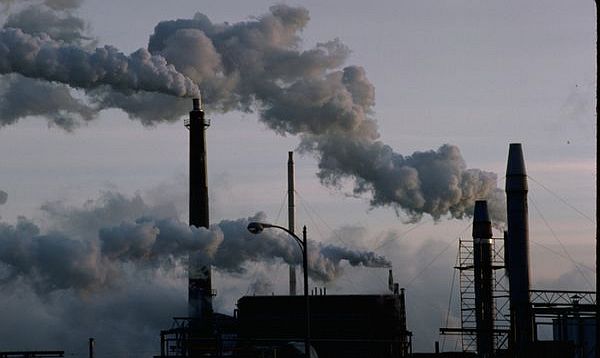Mexico, China, and other emerging economies are leading the fight against climate change by passing laws to cut carbon and raise energy efficiency, the Globe International Alliance of Lawmakers said last week. A study of energy and climate laws in 33 economies showed that 18 made "significant" progress in 2012.
The Globe Alliance, which brings together lawmakers from 70 nations, met last week in London to discuss ways in which governments can contribute to the international effort to contain global warming.
"This is a game-changing development, driven by emerging economies," said John Gummer, president of the group and a member of the UK upper chamber known as the House of Lords. "The tide is beginning to turn decisively on tackling climate change."
The alliance is seeking to leverage domestic laws to spur progress in United Nations treaty talks leading to a new deal to lower carbon dioxide emissions by 2015. National legislation can put in place the necessary mechanisms to report and verify emissions, a prerequisite for a "credible" treaty, it said.
"The clean revolution we need is being carried forward by legislation," Christiana Figueres, the United Nations diplomat who spearheads the talks, said in a Globe statement. "Domestic legislation is critical because it is the linchpin between action on the ground and the international agreement."
Talks that ended in Doha, Qatar in December failed to close the gap between emissions pledges and the scale of reduction the UN says is needed to avert dangerous levels of warming. They kicked off discussions leading to a 2015 deal that will enter force in 2020, and at the same time extended targets under the existing Kyoto Protocol treaty - a binding international agreement to reduce emissions of greenhouse gases - for another eight years.
Canada's Regression
Globe said progress was made in 2012 in Australia, Bangladesh, Brazil, Chile, China, Colombia, El Salvador, the 27-nation European Union, India, Indonesia, Japan, Kenya, Mexico, Pakistan, South Africa, South Korea, the US, and Vietnam.
Canada's withdrawal from the Kyoto Protocol made it the first country deemed to have regressed in the three times Globe has produced its report since 2010. Countries including Germany, the UK, France, and Italy - the EU's four biggest economies - were deemed to have made no substantive change last year.
Mexico's passing of a climate law targeting an emissions cut of 30 percent from a business-as-usual trajectory by 2020 made it last year's "standout country," the alliance said. South Korea passed a law to start an emissions trading program by 2015, China began to draft a climate change law, and India incorporated low-carbon options in its five-year plan, according to Globe.
Globe said it's starting a program to provide political, analytical, and administrative support to lawmakers from the 33 nations represented in London over the next three years, to help create the conditions needed for success in the UN discussions.
Globe's report on climate and energy legislation was produced with the Grantham Research Institute at the London School of Economics.


